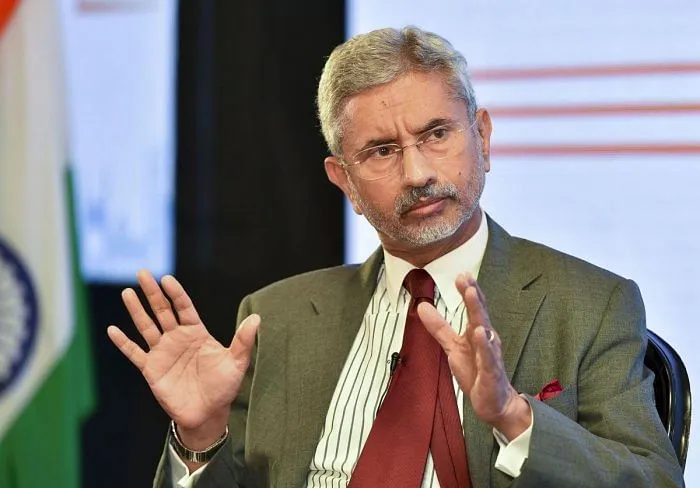Even as COVID-19 shows no signs of abating, leave alone dying out, governments, think tanks and commentators are making attempts to figure out what would be the nature and shape of the post pandemic world. External Affairs Minister S Jaishankar joined these crystal gazing endeavours through his online participation in a session dedicated to “The World After the COVID-19 Pandemic: Challenges and Impacts on Business” of Italy’s Ambrosetti Forum on September 4.
Ambrosetti Forums have been organised every year since 1975 by the Italian consulting firm “The European House-Ambrosetti”. They attract, among others, leading Italian politicians and business personalities as well other leaders from Europe and beyond. They focus on “Intelligence on the World, Europe and Italy”. They are clearly part of an initiative to give opportunities to Italian business to meet important global personalities as well as subtly convey an Italian perspective on pressing global issues.
Such annual exercises organised by think tanks or other organisations associated with businesses or governments have grown over time. Some have become famous such as the one organised at Davos. They are used by prominent global leaders, holding office, to convey their views on sensitive issues. India too, through the Raisina Dialogue, has joined the international circuit of these significant forums and seminars.
Posing the question how would a post-COVID-19 world be different Jaishankar said “Some of it would obviously be in our lifestyle and mindset. Almost universally we will be very much more digitised than before”. Digitisation processes have been proceeding with gathering pace especially over the past two decades. The manner in which the world, including India, has coped with the pandemic has been deeply influenced by the tools that digitisation has made available. This applies as much as to outreach by different governments to their peoples to mitigate the disruption caused by the pandemic as to industry and business and to education and health. It is difficult though to predict how much of this special effort through digital tools will be sustained in the post COVID-19 world.
There will be a tendency to return to some pre-pandemic traditions at least in some areas. For instance, will the Indian courts which continued to function at least partially by going online revert completely to physical hearings? What will be extent of online teaching post pandemic is also difficult to predict. In some cases, students may prefer to go in for such courses but the youth not only need to imbibe knowledge but acquire interpersonal skills which educational campuses ineluctably impart. Thus, as a general observation what Jaishankar said about lifestyles and mindsets and digitisation may be correct but the real issue lies in ascertaining its direction and spread and depth. In these areas there is simply no way to make really accurate predictions.
Jaishankar asserted that the pandemic will impact on peoples’ expectations of their governance systems and also highlighted the importance of ‘health security’. The latter is clearly so but it remains to be seen how different countries effectively address this matter. It is doubtful if the participation of private industry will wane in the health area. Hence, the need of upgrading health security is obvious but will it be realistic to believe that it will improve globally? Also, in terms of governance what matters is how governments put in place programmes for improvement of delivery systems not popular expectations. The Modi government is taking steps to improve governance in areas critical to the people’s lives.
Jaishankar drew attention to the manner in which globalisation had impacted to the advantage of some countries and had pushed back others. He reiterated what Prime Minister Narendra Modi has been highlighting: that it should equally benefit all states. The fact is that it has worked to the advantage of those countries like China that had the infrastructure and understanding of how to take advantage of it. History demonstrates that at different periods of time different states have had comparative advantage and have used it to pursue their interests. The problem with globalisation at present lies in the swiftness of technological change that is taking place. This is adversely impacting some countries entirely but also sections of populations within countries that are unable to cope with technological change. For India the way out lies in massive investments in science and technology and in ensuring that its youth get opportunities to upgrade skills.
Jaishankar correctly noted the current need “is to create greater contributions to global good whether it is in creating vaccines, combating climate change or promoting security. This is not only the right thing to do; it is only sensible course of action”. This writer in several columns in this newspaper has argued for global cooperation in meeting the grave challenges to humanity from COVID-19. There is a need for a full examination of the conduct of China and acts of omission and commission of the World Health Organisation in not being able to fully alert the world to the dangers of virus. The records of both are not clean. But all this should not come in the way of effective global cooperation in ending the pandemic and mitigating its consequences. But will this ideal be achieved?
The fact is the ruthless world of interstate relations is governed by the iron law of pursuit of interests of different players and the ideal is seldom achieved. That does not mean that it should not be attempted but it would not be prudent to rely on it.






